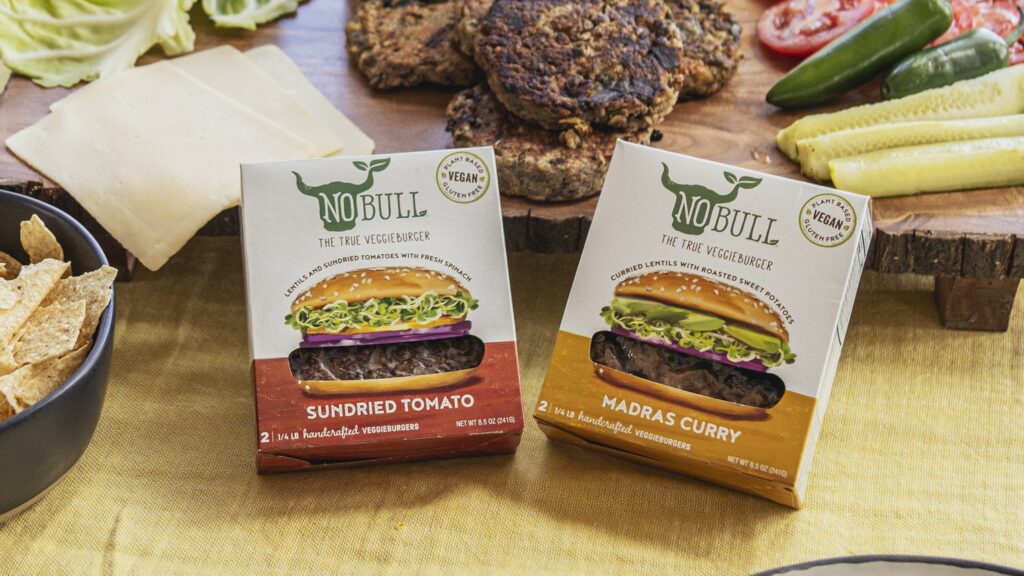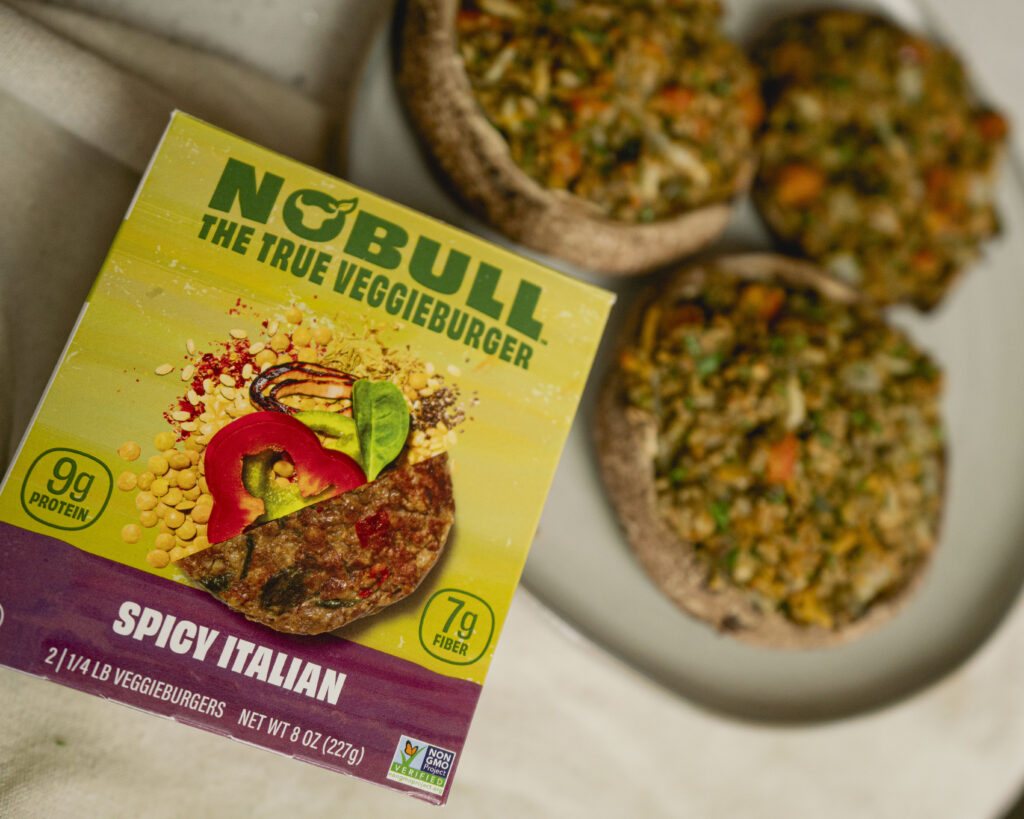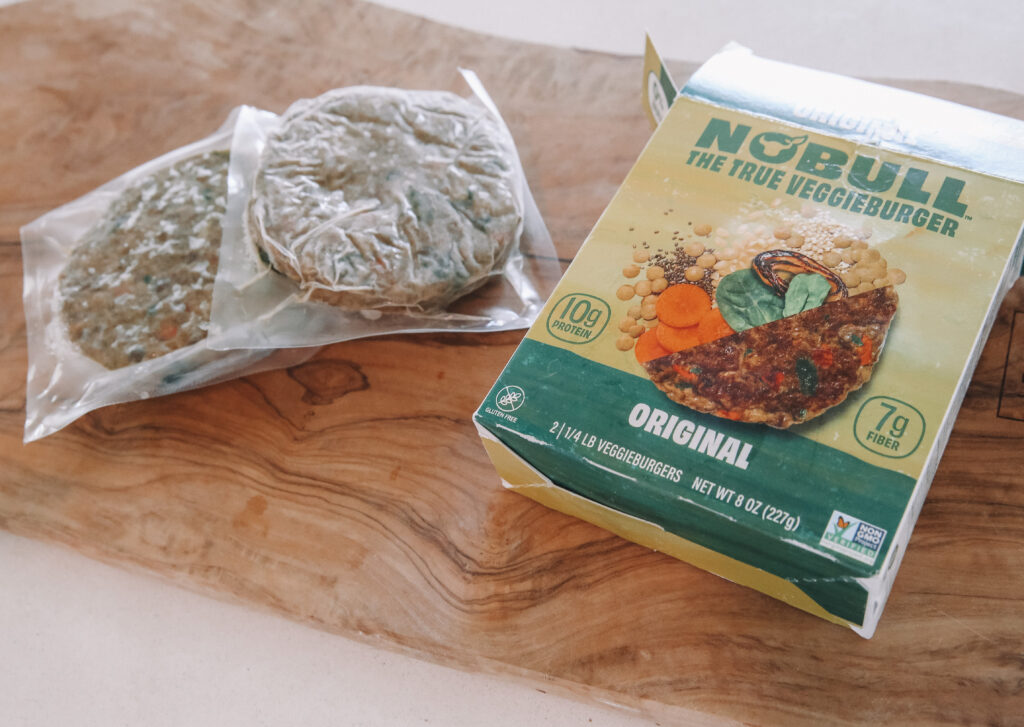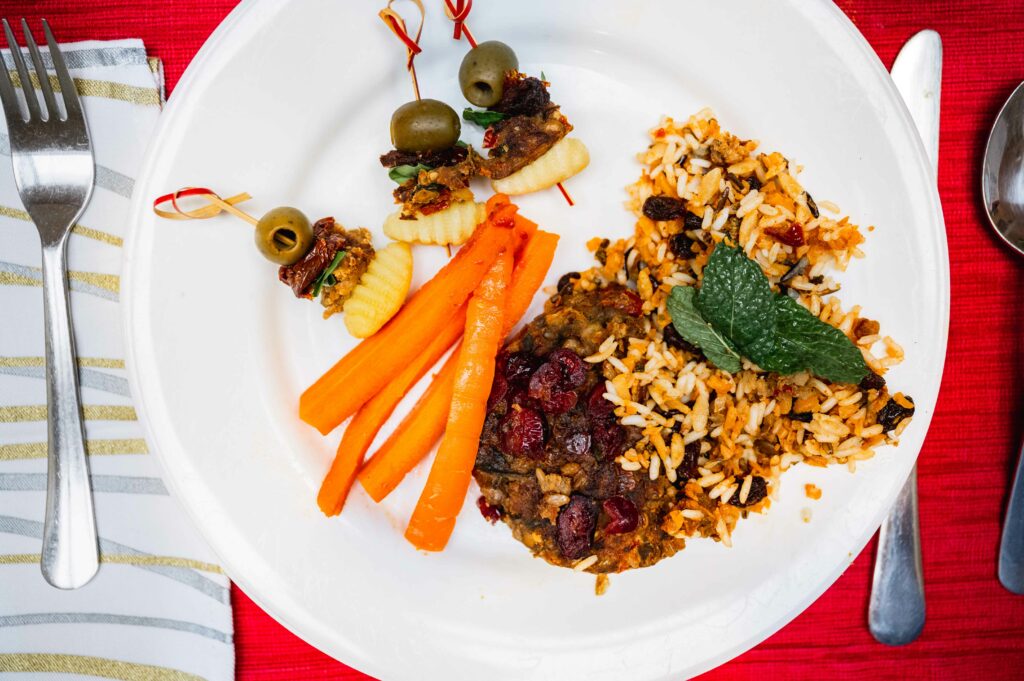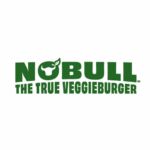It may seem simple: plant-based meat is fake meat made from plant-based ingredients. But that’s not all that there is to the picture – and your health depends on your understanding of what, exactly, is meant by “plant-based meat”. Not all plant-based meats are equal.
In this article, we’re going to talk about fake vs. plant-based meat, and explain which is good for your health and which is not.
What’s the difference between fake and plant-based meat?
There are currently two different kinds of meat alternatives available to consumers: plant-based meat alternatives that use whole foods and no additives, and ultra-processed fake meat with no whole foods.
Plant-based meat is an alternative to meat that is healthy and tastes great on its own – without trying to mimic meat. It includes real, whole plant food ingredients with no additives or fillers. NoBull Burger is an example.
Fake meat, on the other hand, is trying to be meat, and it leaves out unprocessed whole plant foods. Examples include Impossible Burger and Beyond Burger. It’s for people who want something that tastes, cooks and looks like meat, so it includes highly processed ingredients that create a meat-like experience.
What’s healthier: plant-based or fake meat?
A healthy diet isn’t just devoid of certain ingredients – instead, it’s made up of healthy, whole food ingredients (like vegetables, fruits, whole grains, nuts and seeds, spices, lightly processed oils, and healthy fats) and less processed and unhealthy ones (like ultra-processed ingredients, saturated fats, over-processed oils, etc).
The problem with fake meat is that it gives people the perception that it’s healthier when, in reality, it’s simply replacing one unhealthy thing with another. Here are some of the things that are proven to be bad for human health that are shared between fake meat and real meat:
- High in calories and saturated fats
- Ultra-processed ingredients
- Manufactured fillers like extracts and isolated ingredients
- Few or no whole foods in their raw form
- Novel, man-made ingredients that haven’t been tested on humans over time to know possible long-term effects
What does “ultra-processed” mean?
Basically, all food is processed to some degree to make it ready for selling and consuming. At its lowest form, processing includes washing, while at the highest form it includes extracting isolates and concentrates, and adding food coloring and preservatives.
The degree to which foods have been processed has been classified by NOVA into four groups:
- Group 1: Minimally processed with nothing added, only subtracting things like inedible parts
- Group 2: Processed culinary ingredients like oils, broths and honey that, when used in moderation, add to a healthy diet
- Group 3: Processed foods with additives like salt or sugar that are still considered close to the original form, like salted nuts or seeds and smoked meats
- Group 4: Ultra-processed foods made mostly or entirely of extracts like oils, fats, proteins, and starch, or lab-made, with additives like fake flavors and colors. Food is taken from its original form and broken down into parts, then re-processed to create a new “food”. Much of the time, these contain none of the original food itself.
Fake meat is in the group 4 category, while plant-based meat alternatives contain ingredients in groups 1-3.
Take Impossible Burger ingredients for example, in which you won’t find any whole foods in their raw form, only ultra-processed ingredients:
Water, Soy Protein Concentrate, Sunflower Oil, Coconut Oil, Natural Flavors, 2% Or Less Of: Methylcellulose, Cultured Dextrose, Food Starch Modified, Yeast Extract, Soy Leghemoglobin, Salt, Mixed Tocopherols (Antioxidant), L-tryptophan, Soy Protein Isolate, Zinc Gluconate, Niacin, Thiamine Hydrochloride (Vitamin B1), Pyridoxine Hydrochloride (Vitamin B6), Riboflavin (Vitamin B2), Vitamin B12
Now, let’s look at NoBull Burger ingredients, which have whole plant foods in their original form and some lightly processed ingredients (like chickpea flour and protein):
Organic Green Lentils, Organic Brown Rice, Organic Carrots, Onions, Organic Spinach, Non-GMO Wheat-Free Tamari, Organic Quinoa, Chick Pea Flour, Chick Pea Protein, Water, Organic Chia Seed
Eat plant-based burgers that are good for your health
Here’s the bottom line: if you’re going to eat a meat alternative, eat one that is actually good for you (otherwise, it’s not doing your health any favors). The best way to eat a healthy diet is with whole, plant-based foods that are as close to the earth as possible – and NoBull Burger is on a mission to help people do just that.
Why not try it for yourself to see the difference today? Our burgers are available in 5 unique flavors that you can find in stores and online.
